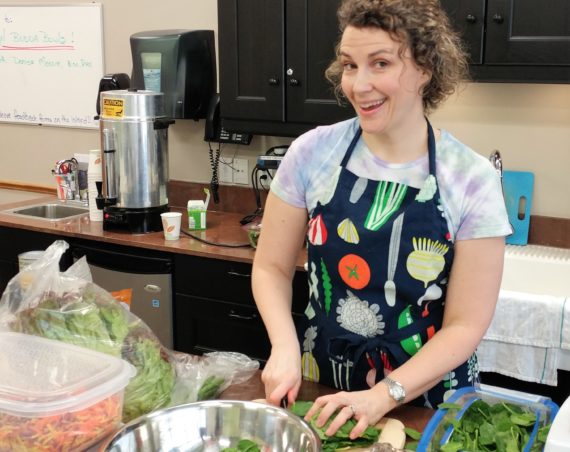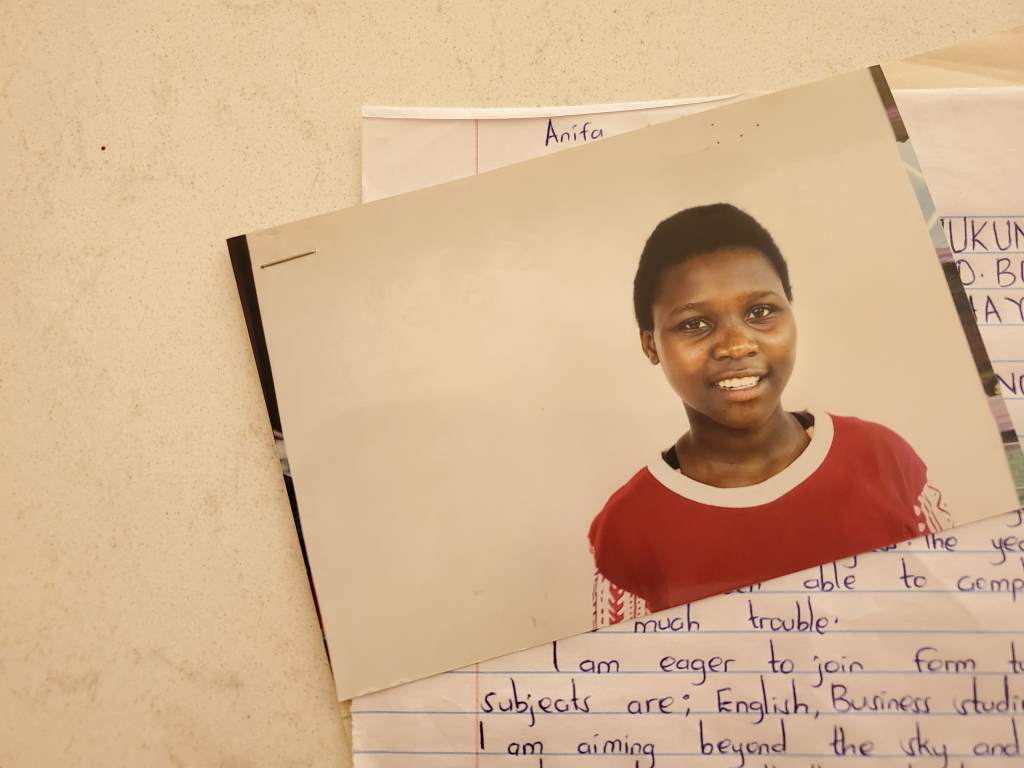Beekeeper’s Naturals is grounded in a cause dedicated to bees. They are obsessed with creating sustainably sourced and innovative products derived straight from pesticide-free, happy hives. Founder Carly Stein enjoys raising awareness and funding that safeguards the future of bees, while formulating wellness solutions that find their origin in bees.
We chatted with Carly to ask her why bees are so important for us and our environment, how we as individuals can help to save the bees, and what we should know about bee pollen.
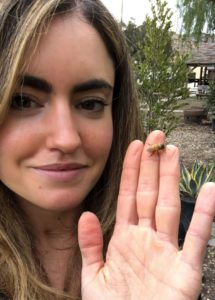
WEHL: Tell us a little about yourself and why you became interested in natural wellness.
CS: I have always been interested in health and doing what I can to keep things natural throughout my life, from eating a balanced diet to exercise. I do it not just for myself but for the world and those around me. I believe that it’s easy for one to fall into unhealthy habits because they are easier and cheaper and I wanted to do what I could to bring about an affordable, sustainable product that is not only good for you but also good for the planet. With Beekeeper’s Naturals I am able to take my passion and focus of healthy living and share that with others all while naturally helping our bees and Earth.
WEHL: What is your philosophy on wellness?
CS: Wellness is listening to your body’s needs. And your body’s needs are ever changing. As you grow and change throughout your life, what you need to stay healthy and well will change and you must be in tune with yourself to know where your body is leading. I believe you need to focus on both wellness of the body and also of the mind to have a well-rounded complete lifestyle that is sustainable and adaptable.
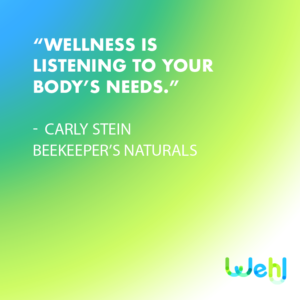
WEHL: What is Beekeeper’s Naturals and why did you decide to start your company?
CS: Beekeeper’s Naturals is all about healing with sustainably sourced superfoods from the hive. We make products so consumers don’t need to take any sort of chemicals and heal naturally. I originally started Beekeeper’s after a trip in Italy was saved by propolis. I had terrible tonsillitis and was set to go home for surgery; when desperate I walked into a random pharmacy and the pharmacist gave me this weird bottle with a dark liquid. It completely healed my tonsilitis and I was able to stay the rest of the year on my study abroad.
After I returned I tried to find this “stuff” I happened upon and couldn’t find it anywhere. I thought to myself, this is too amazing and actually effective to not have as an alternative to pharmaceuticals. And being someone with an autoimmune that prohibits me from taking any antibiotics, I’ve had to work my entire life to find alternatives. It was then I began to formulate what is now our propolis spray and our first product!
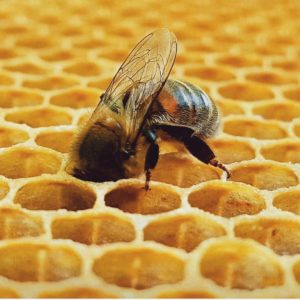
WEHL: How do you harvest the honey from your bees?
CS: Once the bees have capped the cells of an entire frame or most of a frame, which signals to the beekeeper the nectar is 100% honey now, we carefully remove the frame from the hive and scratch through the capped honey cells and allow gravity to drain out the honey in specified containers. From there we strain out the beeswax and/or honey cells that may have fallen in during the process before bottling it. We never heat, pasteurize, or process our honey, keeping it 100% raw honey and healthy.
WEHL: Why are bees so important for us and our environment?
CS: Bees are so important, especially honey bees because they pollinate one third of our world’s food supply. Everything from the honey we enjoy to the alfalfa we feed our meat supply, everything comes back to the honey bees and their pollination.
Honey bees also produce many superfoods that are high in nutritional value and contain benefits that you can’t find in any other food, such as royal jelly, which is highly helpful for the brain, or pollen, which is richer in protein than any animal source. If we aren’t careful with our use of pesticides and pollution, the bees could continue to disappear which would bring devastating consequences. Einstein is quoted with saying “if the bees disappear, humans will disappear within four years.”
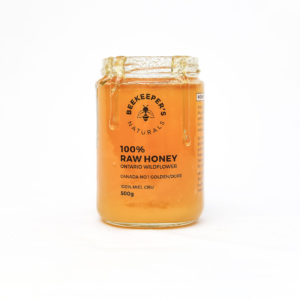
WEHL: What’s the difference between raw honey and regular honey?
CS: I think the key here is that raw honey is regular honey, or the way honey should be. It is unheated, unpasteurized, and unprocessed in any way, leaving the natural benefits on the honey intact and available for your body.
Regular honey may be honey that is heated or pasteurized and/or processed which means much of the nutritional value of the honey has been destroyed in the process. You also run the risk of having other ingredients such as high fructose corn syrup, trace amounts of pesticides mixed in the honey as well. It is always better for the bees and for you to go with 100% raw honey if given the choice.
WEHL: You have a partnership with The University of California Davis Bee Research Facility and the Canadian Honey Council; what is the main goal of this partnership?
CS: As we’ve talked about, bees are very important and vital to our survival on this planet. We partner with UC Davis Bee Research in the US and the Canadian Bee Research Fund in Canada to support important research efforts going towards helping our pollinators. Both the Canadian Honey Council and UC Davis Bee Research Facility are working on protecting the bees, from trying to change laws and ban pesticides to people’s perception of honey bees and how important they are to our continuous high standard of living we are accustomed to. UC Davis’s expertise includes honey bee breeding and genetics, and native bee biology.
Our business is focused on sustainable beekeeping and it’s essential to be partnered with people who are not only like-minded and passionate about the same cause, but also because it is pertinent to be on the forefront of new information as it becomes available so that we may best provide for our bees.
WEHL: How can we as individuals help to save the bees?
CS: It’s quite easy for individuals to help save the bees without too much effort. You can plant a simple garden wherever space permits; bees will fly almost anywhere for the right plant. Or you could go as far as starting a hive of your own in your backyard; it doesn’t take much space, just careful attention. If you want less responsibility you could build a bee hotel for solitary bees such as the mason bee or leafcutter bee.
But the best and most often way to help the bees is to plant flowers for them and only buy sustainably sourced honey and make sure the food you eat isn’t a monocrop such as almonds. Monocropping is where the bees are forced to feed on an endless field of almond trees until they are finished where they are then loaded up and shipped to a new location with a new monocrop that needs pollination.
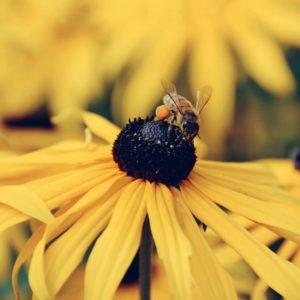
WEHL: What are the flowers or plants that bees love the most?
CS: It can vary depending on the area in which you live and it’s best to select plants that have different bloom times so the bees have a constant source of food. Here are some of the proven bee favorites:
- Spring Blooms: Crocus, hyacinth, borage, calendula, and wild lilac
- Summer Blooms: Bees feast on bee balm, cosmos, echinacea, snapdragons, foxglove, and hosta in the summer
- For Fall: Zinnias, sedum, asters, witch hazel and goldenrod
- Other favorites: Aster, China Wallflower, Siberian Coreopsis, Lance Leaved Poppy, California (Orange), Coneflower, Purple Blanketflower Poppy, Corn Forget-Me-Not, Chinese Phacelia, Lacy, Basil, Sweet Prairie Clover, Purple Mignonette, Sweet Cape Forget-Me-Not, Marigold, French Aster, White Upland Coneflower, Prairie Aster, New England Cinquefoil, Scarlet
WEHL: Tell us about propolis; what is it, and how does it work?
CS: Propolis is the substance the bees make to protect their hive and keep it germ-free. It’s basically the immune system of the plant combined with bee enzymes to make an ultra healer. Propolis is antibacterial, antiviral, antimicrobial and antifungal so it naturally is the main protector of the bees. Propolis is rich in active flavonoids so it works to promote cellular regeneration and actively supports the immune system through cell building compounds.
Propolis is often referred to as nature’s antibiotic and in the Baltic states people even call propolis Russian penicillin. Thanks to its antiviral effects propolis is capable of preventing and fighting off bugs and viruses that cause sickness, colds, flus and sore throats.
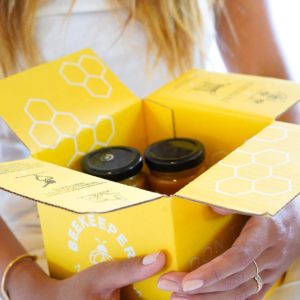 WEHL: What is bee pollen? What’s your favourite way to incorporate bee pollen into your diet?
WEHL: What is bee pollen? What’s your favourite way to incorporate bee pollen into your diet?
CS: Pollen is the main protein source of the bees. Overall, bee pollen has at least 18 vitamins, 22 amino acids, 25 minerals, 59 trace elements, 25% protein, 11 carbohydrates, 14 fatty acids and 11 enzymes.
When honey bees fly from flower to flower they collect pollen, which is the male seed of the plant. The pollen that you eat doesn’t actually make it into the hive; as the bees fly to the hive entrance some of the pollen they are carrying home is dusted off and falls into nets that beekeepers place at the bottom of the hive to be collected. At Beekeeper’s we are constantly monitoring, never over harvesting and making sure our bees have plenty of raw honey to stay nourished.
I believe the best way to incorporate bee pollen is to add it to things you already enjoy! Such as sprinkling it on some toast in the morning, or putting it into a smoothie for added protein. The taste and texture can be hit or miss for some so one can hide the taste in a smoothie or another recipe if need be.
Pollen Recipe – Beekeeper’s Toast:
- 1 or 2 slices of whole grain bread
- 1 banana
- 3 Tbsp of cacao honey
- A sprinkle of 100% raw bee pollen
- Toast the bread to your liking and then add a touch of cacao to hold the slices of banana in place. Drizzle more cacao over the bananas and sprinkle on some bee pollen for a delicious and nutritious breakfast with superfoods from the hive.
WEHL: We are used to eating honey; what are other things we can do with honey?
CS: Honey has natural enzymes because of the way it’s made by the bees. It is great to use as a face mask because it is naturally antibacterial. So it can be used for something as simple as acne treatment and prevention. Or if you are worried about aging, honey is full of antioxidants so it is great for slowing down aging. Or if you prefer a boost in complexion, honey is extremely moisturizing and soothing, so it helps create a natural glow.
Honey also naturally produces melatonin, which is a great natural way to help you sleep without any pharmaceuticals aids. It is also great to add to drinks such as tea or cocktails to add a delicious natural sweetener unmatched!
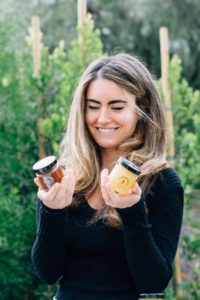 WEHL: Do you have any advice for an entrepreneur who’s interested in building a socially and environmentally conscious business?
WEHL: Do you have any advice for an entrepreneur who’s interested in building a socially and environmentally conscious business?
CS: You need to have a strong mission and goal, something you can point to and keep you focused as more people give their input and join your business. Also, never give up. Most of building a business is failure but it takes a strong entrepreneur to use those failures and convert them into success. To never get too negative and continue on, knowing that your idea is sound and you know it creates something amazing.
I always say to turn your challenges into opportunities because doing the “impossible” feels damn good. There are only two outcomes of taking a chance on your passion project: you fail and learn something important or you succeed and create something amazing.
Connect with Carly and Beekeeper’s Naturals:
- Web: www.beekeepersnaturals.com
- Email: [email protected]
We invite you to join our all-in-one healthy lifestyle app at Wehl.com!


